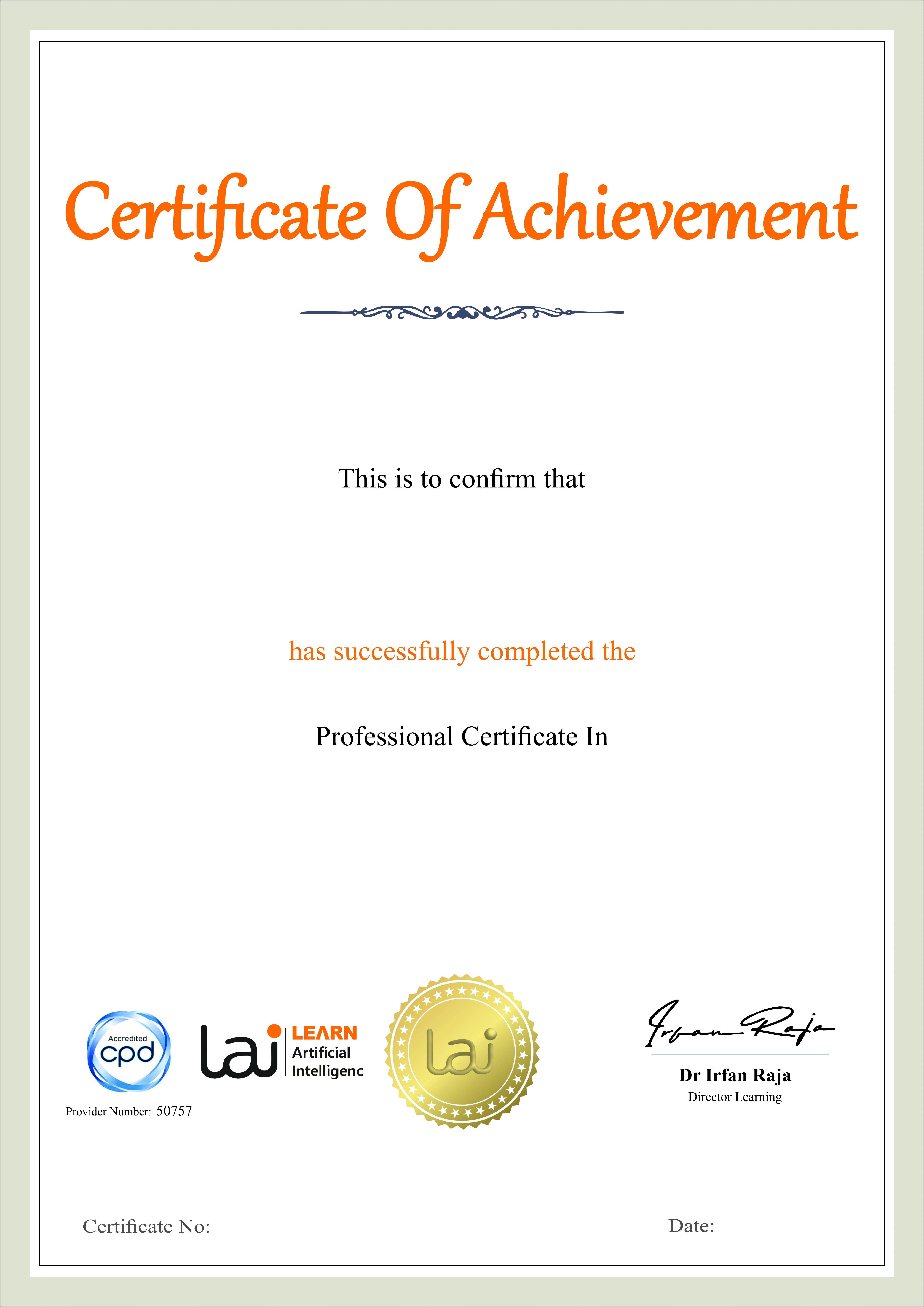The Artificial Intelligence and Auditing course offers a comprehensive exploration of how AI technologies are transforming the auditing landscape.
Artificial intelligence and Auditing
The Artificial Intelligence and Auditing course offers a comprehensive exploration of how AI technologies are transforming the auditing landscape. As artificial intelligence continues to revolutionize the way financial and operational audits are conducted, auditors must adapt to understand, evaluate, and verify AI systems and their outputs. This course provides foundational and advanced insights into the auditability of AI algorithms, data, and decision-making processes, equipping learners with the tools to critically assess AI-driven systems in real-world business and regulatory environments.
By the end of this course, you will have a solid grasp of artificial intelligence auditing frameworks, risk management strategies, governance requirements, and ethical considerations. Whether you’re a professional auditor, compliance officer, or AI practitioner, this course will help you navigate the evolving intersection between artificial intelligence and auditing with confidence and clarity.
This course is designed for professionals and students in auditing, accounting, compliance, data science, and AI development who are keen to understand how artificial intelligence impacts auditing practices. It’s ideal for internal and external auditors seeking to audit AI-driven systems, compliance professionals managing AI governance, and AI developers looking to build audit-ready models. No prior AI knowledge is required, although a background in auditing or data systems is helpful.
Understand the core principles of artificial intelligence auditing.
Identify key risks and governance considerations in AI systems.
Evaluate the lifecycle of AI systems from an auditor’s perspective.
Assess the transparency, fairness, and robustness of AI algorithms.
Audit datasets and data flows in AI-powered environments.
Evaluate decision-making processes and outputs of AI tools.
Conduct security and robustness checks on AI models.
Apply ethical frameworks to AI auditing practices.
Report on AI audit findings and suggest continuous improvement strategies.
-
Explore the basics of artificial intelligence in the context of auditing, including its benefits, risks, and the need for independent evaluation.
-
Learn about international and industry-specific governance frameworks, compliance standards, and best practices for AI oversight.
-
Understand each phase of the AI lifecycle—development, deployment, and monitoring—and identify where auditors should intervene.
-
Gain hands-on techniques for evaluating the transparency, fairness, and explainability of machine learning models.
-
Explore into data integrity, sourcing, preprocessing, and data governance in AI systems from an auditing perspective.
-
Assess how AI systems generate outcomes and how to audit their logic, biases, and impact on users and business operations.
-
Conduct risk assessments and evaluate resilience against cyber threats, adversarial attacks, and performance degradation.
-
Examine ethical principles, bias mitigation, fairness in decision-making, and transparency reporting.
-
Learn how to document audit findings, recommend improvements, and integrate feedback loops for AI lifecycle enhancement.
Earn a Professional Certificate
Earn a certificate of completion issued by Learn Artificial Intelligence (LAI), accredited by the CPD Standards Office and recognised for supporting personal and professional development.

Key Aspects of Course

CPD Accredited
Earn CPD points to enhance your profile

Free Course
This course is free to study

Self-Paced
No time limits or deadlines

Flexible & 24/7 Access
Learn anytime, anywhere

Build In-Demand Skills
Get job ready

Updated AI Skills
Stay current with AI advancement

Global Learning
Accessible Worldwide

Premium Materials
High-quality resources

Employer Approved
Boost your career prospects



